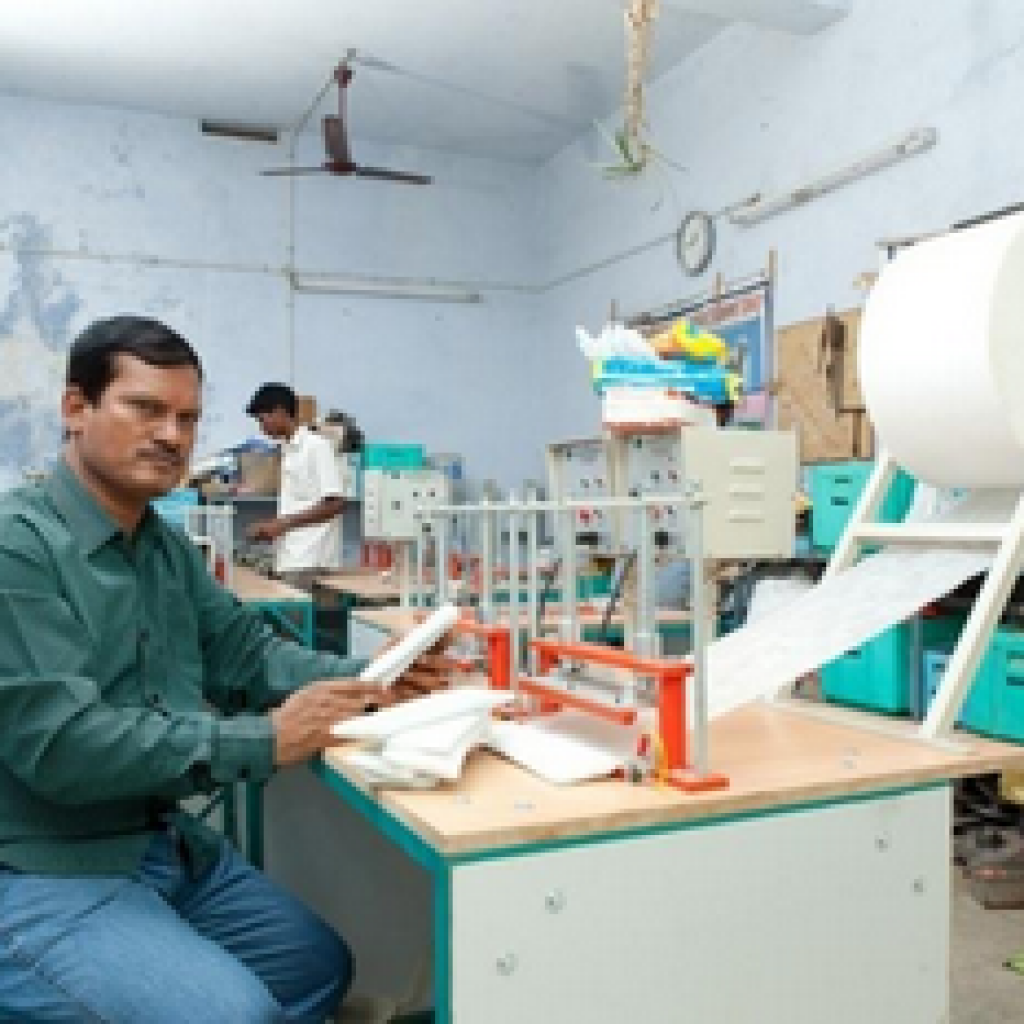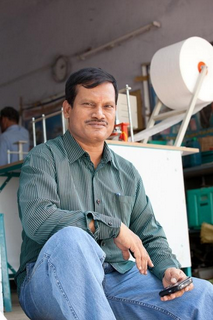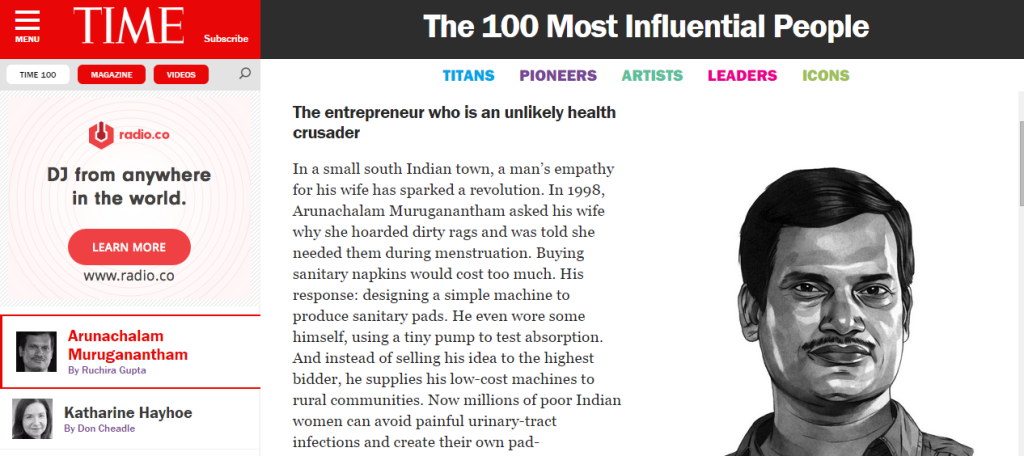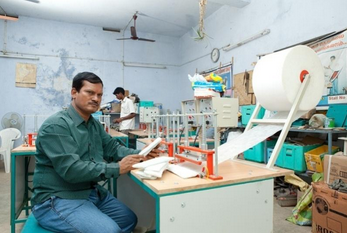
“Grab the Opportunity – It won’t be lying around on the ground!”
“The Sanitary Napkin Man” may sound an awkward title, but is a resounding Google search – about 2,55,000 results in 0.37 seconds – all about Arunachalam Muruganantham – a social entrepreneur who has empowered women in a way no one before him has.
He is the inventor of a low-cost sanitary pad making machine and has innovated grass-roots mechanisms for generating awareness about traditional unhygienic practices around menstruation in rural India. His mini-machines, which can manufacture sanitary pads for less than a third of the cost of commercial pads, have been installed in 23 of the 29 states of India. He is currently planning to expand the production of these machines to 106 nations.
Pixr8 interviewed the great man recently. He has a sharp sense of humour, a stringent work ethic and a really strong message on women empowerment.
Here is Mr Muruganantham, talking straight from his heart:
In which role do you identify more with – Social innovator or an entrepreneur?

I learnt the meaning of these fancy words only after working. I was raised by a single mother, my father died early in a road accident.
I strive to solve social issues and work to find solutions. When I made my first machine, I became aware that it has the potential to change lives of women. It was first noticed by the Western world – not India. CNN, BBC, The Guardian, The Independent etc carried my story and give me the title of a Social Entrepreneur – and said that I had made a grassroots innovation. Till then, I only knew grass – eaten by goats and cows.
I only want to empower women, I know every country in the world is basically managed by women not men. Where ever women are empowered, those are the developed nations, where women are not empowered, those are the underdeveloped or developing nations.
You have been listed in 2014 in TIME magazine’s list of 100 Most Influential People in the World. How does such recognition enable your work and assist in furthering your cause?
It helps me in getting recognition and big corporate houses become more aware of my work. However, as a social entrepreneur, mere recognition does not ease out my work. Life continues to throw fresh challenges. Even if I improve in one domain, I have work in another.

Having achieved so much, how do you keep yourself motivated?
Every human gets encouraged and discouraged. I too do get discouraged but only for a few seconds, and then switch on to ‘encouraged’ mode. The reason is that I have a clear purpose, which drives me to do more work. And purposeless work is tiring, but I have a clear purpose. One must find his or her purpose in life.
Bulk of your work is in rural areas. How do you see the role of technology, specifically the internet, in increasing the reach of your products?
The internet, unfortunately, will help only in urban centres. In rural areas, sadly, the spread of the internet has to be improved. If I ask someone in rural Andhra “Send me an e-mail” he wonders – why is this man asking me to catch a peacock, since ‘an e-mail’ sounds like the Telugu word for ‘peacock’. No one in rural India yet understands the power of the internet. The India that the urban youth see and the India I work in are totally different. India is built of 6 lakh villages, which are neglected.

What is your message for the grassroots level innovators of the country?
My main message is that don’t look for an opportunity – it is not lying on the ground. Bulk of the opportunities have been taken up by Politicians or Businessmen. All the students of millions of colleges would get opportunities – these are in form of social problems. In India, walking each step confronts you with 10 problems. Solve a problem. Address the problem with your knowledge. Go in for a grassroots level innovation and find a solution.
If every citizen works towards solving a problem, India would one day be a problem less society. It can’t be done by only politicians, all of us have to contribute.
It is obvious that profits are not your primary concern, how do you sustain your business?
The problem of sustenance is all pervading, not only for social workers. However, as a social entrepreneur, the primary goal is to solve a problem and create a social change. Profit is a secondary aim. Social enterprise is very difficult because one has to sustain even while creating a social change.
It is unbelievable, but true – India has 2.2 million NGOs – there is an NGO for every 600 citizens. Yet we needed a school dropout to give a dedicated solution to the issue of women personal hygiene. That is what drives me.
What are your plans for the future?

My clear plan is to create a million employment opportunities for the livelihood of poor rural women. I aim to develop India into a 100% napkin using country from the current level of 5%.
For this, even my lifetime is insufficient. Hence, I hope to create district level role models – who can carry the message and work further.
I tell politicians that my project is not a short term role like a gift of a sewing machine or cycle to the poor. It is a long-term commitment over decades. We need district level training centres, where women will learn sanitary pad making which they will replicate at the Zilla and Panchayat level. I am in communication currently with UP for this purpose.
What will you like to say to all students?
I am an uneducated man, hence I have never stopped learning. Even when you are asking me questions, I am learning. Unfortunately once you complete your education and get a certificate, you stop learning at that moment. Please retain an attitude of ‘I don’t know’, only then you can keep learning.
About Author:
 Lively, talented, strong willed Arian, Arushi loves to experiment and innovate. A budding marketer – HR enthusiast – DIY artist – music lover – having more layers to her personality than hyphenated definitions can accommodate. Currently, she’s wrapping up her grad at DU and looking at the future with wonder and expectation. A keen explorer who has traveled extensively in India and aims to soak up the rest of the world soon!
Lively, talented, strong willed Arian, Arushi loves to experiment and innovate. A budding marketer – HR enthusiast – DIY artist – music lover – having more layers to her personality than hyphenated definitions can accommodate. Currently, she’s wrapping up her grad at DU and looking at the future with wonder and expectation. A keen explorer who has traveled extensively in India and aims to soak up the rest of the world soon!
